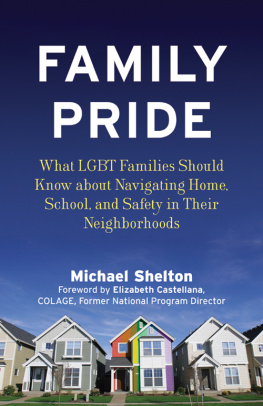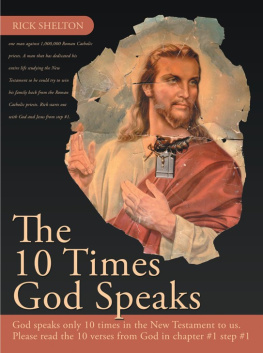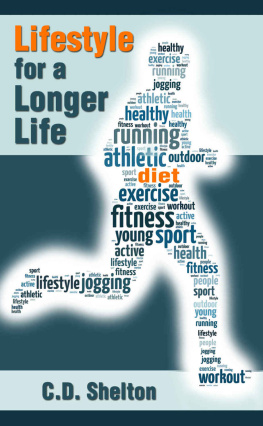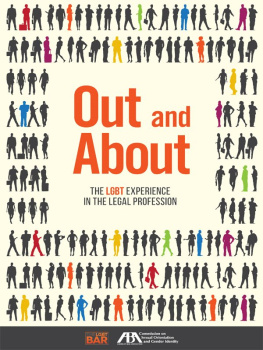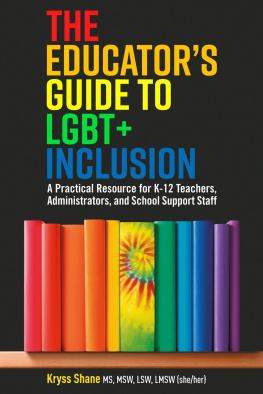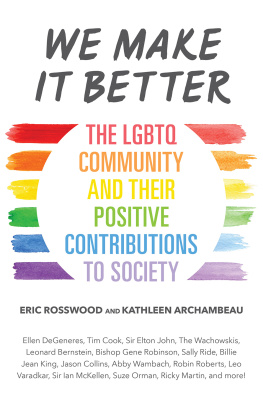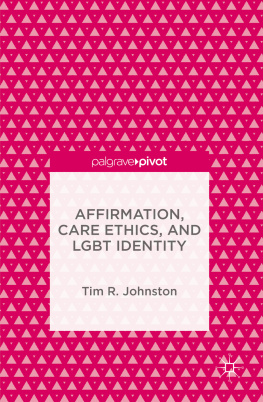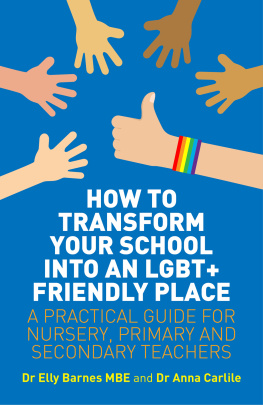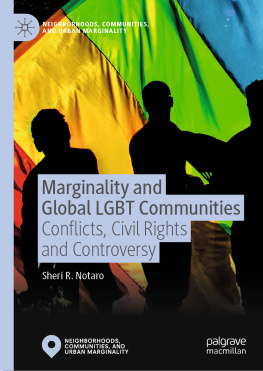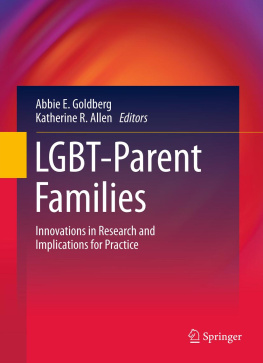OTHER BOOKS IN THE QUEER IDEAS SERIES
Gaga Feminism: Sex, Gender, and the End of Normal by J. Jack Halberstam
Queer (In)Justice: The Criminalization of LGBT People in the United States by Joey L. Mogul, Andrea J. Ritchie, and Kay Whitlock
God vs. Gay? The Religious Case for Equality by Jay Michaelson
Beyond (Straight and Gay) Marriage: Valuing All Families under the Law by Nancy D. Polikoff
From the Closet to the Courtroom: Five LGBT Rights Lawsuits That Have Changed Our Nation by Carlos A. Ball
OTHER BOOKS IN THE QUEER ACTION SERIES
Come Out and Win: Organizing Yourself, Your Community, and Your World by Sue Hyde
Out Law: What LGBT Youth Should Know about Their Legal Rights by Lisa Keen

For Donald.
How could I complete a book without you?
A Note from the Series Editor
The rapid emergence, over the past decade, of the LGBT family from the shadows of fear into the bright light of the everyday world has been startling. Openly LGBT families are now attending PTA meetings, applying for social services, and rolling Easter eggs on the White House lawn. This journeya continuous, unfolding adventure for many familieshas been historically a slow, and often dangerous, one. In the 1950s and 60s one of the main concerns of the Daughters of Bilitis, the first political and social group founded by and for lesbians, was to help women who were raising children alone or with a partner. Dealing with issues of housing, school, being out, and dealing with hostile relatives and neighbors were a staple in their publication, the Ladder. The advances of feminism, gay liberation, and the relatively new field of LGBT family law has made life for these familiesand really, all familiesimmeasurably better, safer, and healthier.
This move into the bright daylight of security and safety is immeasurably helped by Michael Sheltons Family Pride: What LGBT Families Should Know about Navigating Home, School, and Safety in Their Neighborhoods. Raising a happy, healthy family is difficult for all Americans who choose to do so. For nontraditional families, and especially LGBT families, what should be a joyous experience can often be fraught with social, legal, political, and even medical problems. Are our children going to be safe at school if their classmates find out that they have two mothers? Can I trust the doctors and nurses at the local health clinic to tell them that Bobbys father has HIV/AIDS? How open can I be with our neighbors about the fact that my partner and I just broke up? These are just a few of the problems that LGBT families face every day. Michael Shelton is not just providing reasonable, helpfulmaybe even life-savingadvice here for LGBT families. He is mapping out new territory in helping reshape and rethink how all families might live safer, stronger, and happier lives.
MICHAEL BRONSKI
Series Editor, Queer Action/Queer Ideas
Foreword
The current legislative battles over adoption and marriage have fostered shrill and poignant rhetoric around families with LGBTQ parents. As the daughter of a gay father from a mixed-race family, I am personally familiar with many of the dominant themes in LGBTQ family issues. In this storm of dialogue, COLAGE is the only national organization focused solely on the needs of the children, youth, and adults with LGBTQ parents. I have the incredible privilege of not only having a gay parent, but also of making my living working for COLAGE and with people who have LGBTQ parents (COLAGErs) all over the country. As my involvement with COLAGE has grown, I have met thousands of youth and adults with LGBTQ parents and I have been honored to represent us within the LGBTQ equality movement in many ways.
COLAGErs often have the ambiguous privilege of being able to hide our identity. We can choose to be bold and out about our families or to be closeted about them, and most of us have had to stare that choice in the eye. Sometimes we make choices that are about short-term safety and security; sometimes we wage love on our fiercest adversaries; sometimes we play our cards close to the chest, fly in under the radar, and confront hate and bigotry in powerful ways. Sometimes we preempt prejudice by being out, happy, and proud of our family in ways that challenge the notion that we have any reason to feel insecure.
On the whole, we are proud of our families. In many ways, having LGBTQ parents is far less unusual than our straight-parented peers may think, but to say that our families are just like straight-parented families falls short of reflecting our truth. Much of the rhetoric around our families focuses on the argument that we should have the same rights and protections as straight-parented families because we are just like them: we eat family meals, we celebrate holidays, we go to church. Well, sure, for some of us that is the case, but its not the whole picture, not by a long shot.
When you grow up in a world that challenges your familys legitimacy, everything you do as a family takes on a deeper meaning. Sadly, many of the challenges to our families legitimacy come from within the LGBTQ movement. In an effort to win equality, we are pushing the image of the goodness and normalcy of our families, we proudly show off high-functioning two-parent home-owning white suburban families who are ready for prime time. In Family Pride, Michael Shelton carefully peels off the veneer to counter innumerable myths and misconceptions about our families with simple data. Our families reflect complexity of structure and composition, as do all other families; in a sense, we are just like other familiesin that we just are as difficult to fit into a mold. We are also different from all other families in that we face specific, direct, and targeted discrimination daily. What Shelton captures in this skillful analysis is that our families face the work of raising children in the same challenging world as all parents do, but they do so with an added layer of discrimination, fear, and ignorance.
As children moving through the world with LGBTQ parents, our sensitivity to hostility, judgment, and hate is heightened. We have to search ourselves daily in making choices about whom to put on our family tree at school, whether or not to invite a friend for a sleepover. This is not because we are ashamed our families, its because of a desire to protect ourselves and our families from the negative (and baseless) feelings others may or may not have about them.
For fear of fueling anti-equality arguments, many of us, parents and children alike, avoid speaking out about the true hardships of living in LGBTQ-parented families. The myths and stereotypes around LGBTQ culture are both damaging to and protective of our families, and their removal is delicate work.
To be raised by LGBTQ parents means countless things. Our parents were often intentional, brave, and thoughtful about how to create a family, partaking in strong communities of other LGBTQ people, all of whom are deeply invested in our safety, health, and happiness. But LGBTQ families must still face hard choices about truth-telling and safety, standing up for ourselves and our families in the face of potential ostracism or worse. We need language to talk about sexuality and identity at ages when our peers may be sheltered from such concepts, and we often have to educate adults like teachers and counselors about us and our families. Some of our families live in four-bedroom houses on cul-de-sacs in the suburbs and have two parents and two children, a dog and a minivan, but most of us dont (most straight-parented families dont, either). Our families become part of the LGBTQ-parented community through adoption, kinship care, foster care, insemination, surrogacy, or simply when a parent comes out.

